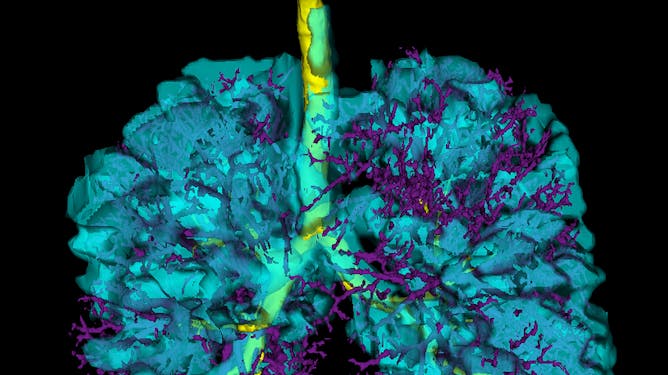|
|
|
The Conversation Canada’s Top 10 countdown
|
|
Since tonight is New Year’s Eve, we have a special countdown for you: The Conversation Canada’s Top 10 most-viewed stories that we published in 2019.
This year, we published more than 1,000 articles, which received over 20 million page views in total, averaging about 1.7 million views per month.
About half of these views were on The Conversation’s website, while the other half were on websites that republished our articles. Anyone can republish our content for free under a Creative Commons licence.
Our articles appeared in over 500 media outlets, including:
-
Canada: Newspapers across the country via The Canadian Press, Apple News, MSN, Global News, The Weather Network, Maclean’s, Village Media, Toronto Star, The Tyee, Nunatsiaq News, Zoomer, Today’s Parent, University Affairs
-
U.S.: PBS, Washington Post, CNN, Live Science, Inverse, Fast Company, Scientific American, Popular Science, Space, Quartz, Salon
-
Overseas: World Economic Forum, Daily Mail (UK), ABC (Australia), Channel NewsAsia (Singapore), News24 (South Africa), Scroll (India)
We thank our republishers, authors, university members, partners and you – our newsletter readers!
Happy New Year and, as we enter the final day of 2019, here’s the countdown!
|
Lisa Varano
Audience Development Editor
|

|
|
#10: 134,161 views
|

Lung MRI of an ex-smoker of cannabis and tobacco, showing poor lung function and truncated airway tree. In vaping patients, oily substances have also been found inside their lung tissue and airways.
(Parraga lab)
Grace Parraga, Western University
Vaping devices cause deadly lung toxicity. Their marketing to children must be banned.
|
#9: 139,638 views
|

In a research study, 84 per cent of residents and families who received a pamphlet about end-of-life choices felt encouraged to think about their future care.
(Shutterstock)
Tamara Sussman, McGill University
The seriously ill and their families often want to protect each other from thoughts of death. Conversation about end-of-life choices are, however, essential to a good death.
|
#8: 148,438 views
|

With the ubiquity and availability of devices connected to the internet, access to pornography is easier than it has ever been.
(Charles/Unsplash)
Rachel Anne Barr, Université Laval
Cognitive neuroscience finds that regular consumption of pornography affects the centres of the brain responsible for willpower, impulse control and morality.
|
#7: 172,116 views
|

As automated technologies are increasingly incorporated into car design, consumers need to educate themselves on these features for safety reasons.
Shutterstock
Francesco Biondi, University of Windsor
More manufactured cars are integrating assisted-driving technologies such as parking support and networked dashboards. But what should a consumer look for?
|
#6: 174,008 views
|

Voice-enabled searches are becoming increasingly popular when it comes to web browsing, and that’s a problem for the food industry.
(Shutterstock)
Sylvain Charlebois, Dalhousie University
According to a recent report, 30 per cent of web-browsing sessions will soon be done without a screen. Voice-enabled searches are becoming the norm, and that's a problem for the food industry.
|
#5: 193,183 views
|

It is never too late to start exercising to improve your memory.
(Shutterstock)
Jennifer J Heisz, McMaster University
Physical inactivity contributes to dementia risk as much as genetics, according to research.
|
#4: 219,288 views
|

The average Canadian adult consumes more than triple the daily limit of 25g added sugar recommended by the World Health Organization.
(Unsplash/muhammad ruqiyaddin)
Amy Reichelt, Western University
Sugar triggers dopamine "hits" in the brain, making us crave more of it. Sugar also disrupts memory formation.
|
#3: 293,482 views
|

Sex with robots will increase, as technological developments produce new love interests.
Shutterstock
Neil McArthur, University of Manitoba; Markie Twist, University of Wisconsin Colleges and the University of Wisconsin-Extension
Developments in technologies like robotics and virtual reality are opening new possibilities for sexual experiences.
|
#2: 348,551 views
|

An image taken by the Hubble telescope of NGC 4639, a barred spiral galaxy in the constellation of Virgo.
NASA
Toby Brown, McMaster University
The first ever Canadian-led large project on one of the world's leading telescopes will investigate how the birth and death of galaxies are affected by their environment.
|
#1: 356,934 views
|

An artist rendition of the najash snake.
Michael Caldwell, University of Alberta; Alessandro Palci, Flinders University
The discovery of a perfectly preserved snake skull fossil answers many questions about the evolution of snakes from lizards.
|
| |
| |
| |
| |
| |
| |
|
|
|
|
|
|
|